How to fight addiction to social media
Addiction to social media: main causes and symptoms
Psychologists, psychiatrists and experts from Silicon Valley are warning that social media use can be addictive and its consequences the same as those of any other addiction: anxiety, dependence, irritability, lack of self-control, etc. Faced by this prospect, people are increasingly asking: are social media a real problem?
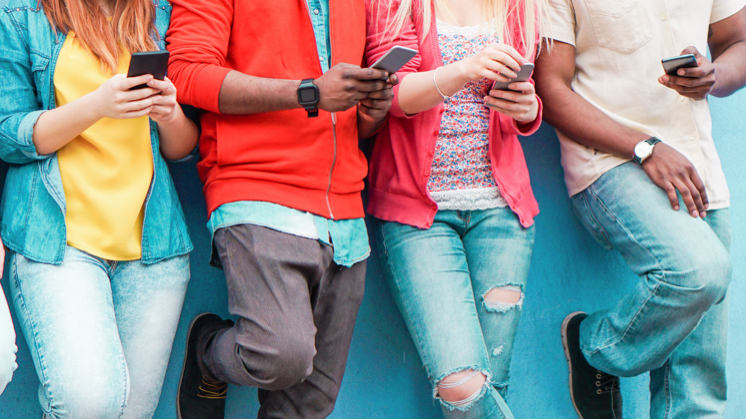
Teenagers’ addiction to social media and the consumption of endless content is such a concern that the European Union has created regulation for their ethical use. Its aim is to create a design that replaces the scrolling characteristic of social networks, which, according to experts, is one of the main reasons for addiction, as you don’t know how much time you have spent on the platform. In fact, if the father of the iPad, iPod and iPhone himself, Steve Jobs, wouldn't allow his kids to get too tied up with technology (he restricted their usage time), he probably had some idea of how social media affect our youngsters.
What is for sure is that, according to many experts, the use of social media — and that includes instant messaging services — can lead to serious addictions and their associated consequences: anxiety, depression, irritability, isolation, distancing oneself from the real world and from family relationships, loss of control, etc. But what do we really mean by addiction?
An addiction is a dependence on substances or activities that are harmful to health or psychological equilibrium. These activities include, for example, playing video games — already classed as an illness by the World Health Organisation (WHO) — an obsession with work, on and off-line gaming, and, for many also, the excessive use of social media which in fact now have five billion active users in the world (62.3% of the world's population) spend on average 2 hours and 23 minutes a day using social media; while spending almost 7 hours on the Internet, and using at least 6.7 social networking platforms a month. Nevertheless, despite these overblown figures, experts believe that only a small percentage of those 5 billion exhibit a real dependence on social media.
The most used social media in the world
Although each country has a preference for one network over the other, by number of monthly active users globally, the top ten most used are (data in billion users):
- Facebook
3.07
- YouTube
2.53
- WhatsApp
2.00
- Instagram
2.00
- TikTok
1.69
- WeChat
1.37
- Telegram
950
- Facebook Messenger
937
- Snapchat
850
- Douyin
755
Source: Digital 2024: Global Overview Report
Discover the most heavily-used social media in the world
Although each country has its own preferences for particular networks, according to the number of active monthly global users, these were the ten most heavily used in January 2023 (data in millions of users).
- Facebook: 2,958
- YouTube: 2,514
- WhatsApp: 2,000
- Instagram: 2,000
- WeChat: 1,309
- TikTok: 1,051
- Facebook Messenger: 931
- Douyin: 715
- Telegram: 700
- Snapchat: 635
Source: Global Digital Headlines 2023.
Hide information
Causes and profile of people addicted to social media
Amongst the most widely-recognised causes of addiction to social media are low self-esteem, personal dissatisfaction, depression and hyperactivity, and even lack of affection, a deficiency that adolescents frequently try to replace with the famous likes. In fact, many young people seek them out almost compulsively to experience an intense — but always fleeting — feeling of satisfaction that nevertheless can be counter-productive by making them dependent, in the long term, on the opinions of others.
The usual profile of the addict is a young person aged between 16 and 24. Adolescents are at the highest risk of falling into addiction, experts say, for three basic reasons: their tendency to be impulsive, their need for a widespread and growing social influence, and finally, the necessity for them to reaffirm their group identity.
Sherry Turkle, a psychoanalyst at the Massachusetts Institute of Technology (MIT), has done extensive research into the impact of social media on relationships and confirms that they weaken human ties. In her book Alone Together: Why We Expect More from Technology and Less from Each Other she describes in detail the negative impacts of being constantly connected, which, paradoxically, brings with it a certain feeling of loneliness. As she herself states "The ties we form through the Internet are not, in the end, the ties that bind. But they are the ties that preoccupy."
Experts explain that the particularity of social media is that young people's continued use can also lead to other problems such as insecurity, isolation from real life and face-to-face interactions, and less quality sleep.
The annual Digital 2024 social media and digital trends report found that users' favourite platform is Instagram, and TikTok wins for most time spent a month (34 hours per user per month).
Symptoms of dependence on social media
What constitutes addiction? The boundaries are blurred, but there are some indicators that give a good idea as to the existence or otherwise of that dependence on social media, although the final word always rests with the medical profession. These are the usual giveaways:
- Feeling unsettled when there is no access to the internet, the social network is down, or it is slower than usual.
- Checking social media first thing in the morning and last thing at night.
- Feeling stressed when the smartphone isn't to hand.
- Using social media while walking.
- Feeling bad when not getting likes, retweets or views.
- Using social media when driving.
- Preferring to communicate with friends and family through social media rather than face-to-face.
- Feeling the need to share everyday things all the time.
- Thinking that everyone else's life is better than ours, depending on what we see on the networks.
- Checking in wherever we go.
How to prevent addiction to social media
As with all addictions, prevention is better than cure. In this regard there are some simple practices that are very effective in reducing that excessive use of social media that leads to dependence. The following are among the most effective:
 Set a minimum time of 15 minutes between connections.
Set a minimum time of 15 minutes between connections.
 Do without your mobile at key times of the day (breakfast, lunch and dinner).
Do without your mobile at key times of the day (breakfast, lunch and dinner).
 Switch off automatic notifications.
Switch off automatic notifications.
 Put your mobile on silent and don't even use it as a watch or alarm, to avoid temptation.
Put your mobile on silent and don't even use it as a watch or alarm, to avoid temptation.
 Set a minimum time each day for completely offline activities such as sport, reading or listening to music.
Set a minimum time each day for completely offline activities such as sport, reading or listening to music.
 Cut down your number of social media friends.
Cut down your number of social media friends.
 Delete unnecessary apps and WhatsApp groups.
Delete unnecessary apps and WhatsApp groups.
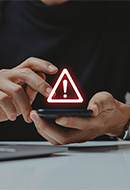
Digital security: understanding smishing with Iberdrola
Smishing is a type of deception through the sending of text messages.
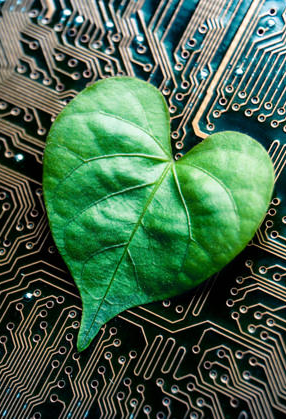
What is digital ethics?
Technology has undoubtedly brought great advances to society, but, at the same time, it has brought great challenges.

Cyberbullying effects, characteristics and consequences
In the United States, at least 46% of adolescents have experienced some form of cyberbullying-related behaviour.
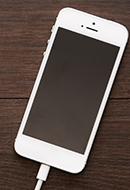
Nomophobia: the irrational fear of being without a mobile phone
Nomophobia’, a disorder that experts have described as the disease of the 21st century.
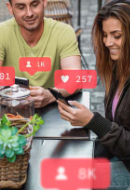
What is the Internet of Behaviour?
The Internet of Behaviour makes it possible to extract individual patterns that are multiplied on a mass level.

Digital sustainability
Each email we store on our computer would generate around 10 grams of CO2 per year.




